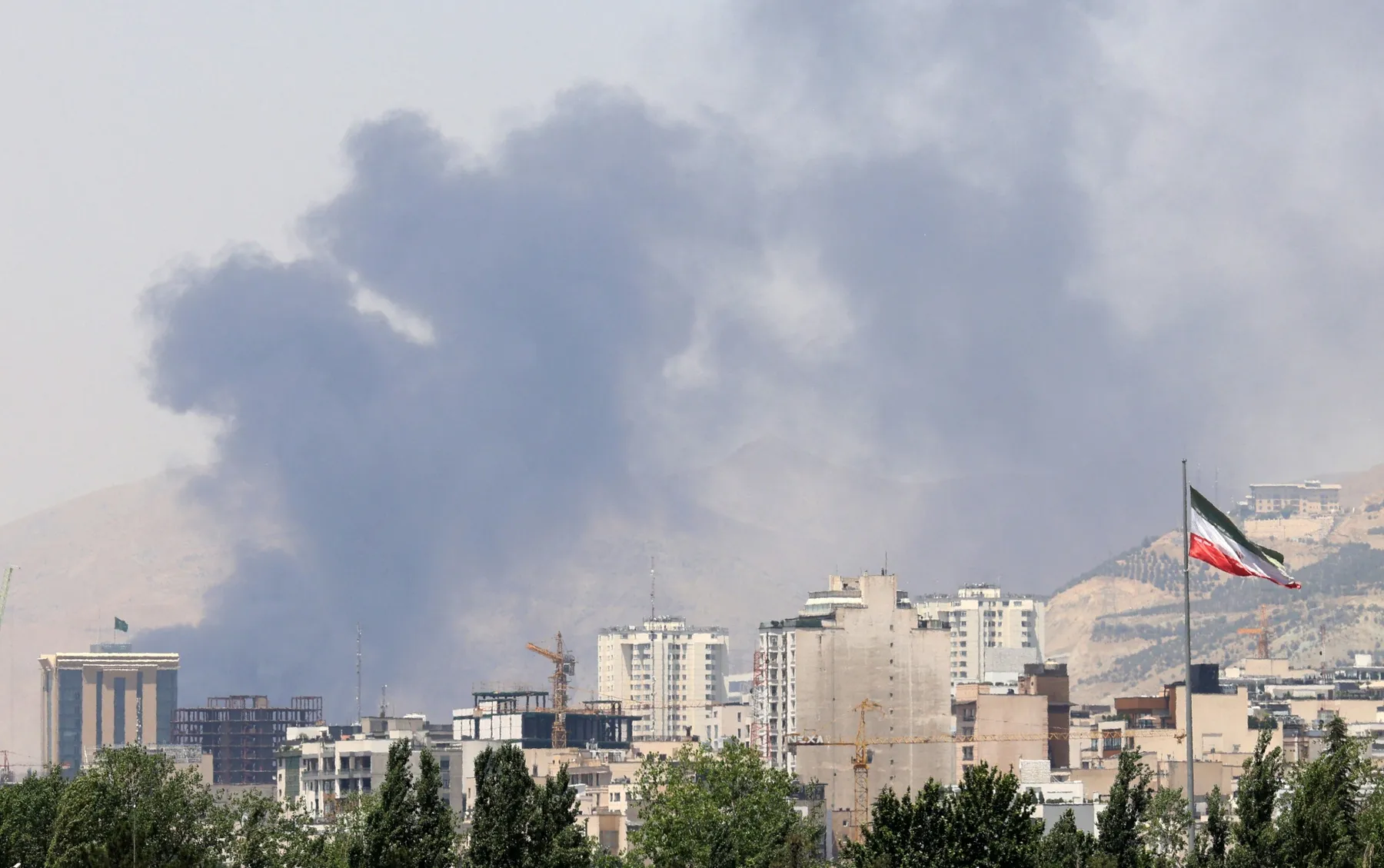For years, the Gulf states painstakingly built diplomatic bridges toward Iran — their longtime adversary. They invested billions of dollars in attempts at rapprochement, hoping that economic cooperation and a renewed nuclear deal would reduce regional tensions. But Israel’s sudden airstrike on Iranian territory, which came while nuclear negotiations between Tehran and Washington were still underway, has thrown this delicate balance into chaos — dragging the Gulf neighbors into the region’s most dangerous confrontation in decades.
According to Bloomberg, just 48 hours before the attack, Iranian Foreign Minister Abbas Araghchi met with his Saudi counterpart, Prince Faisal bin Farhan, in Norway. At a diplomatic forum near Oslo, Araghchi gave a detailed briefing on the status of nuclear talks with the United States. In response, Prince Faisal warned bluntly: “Israel is preparing to strike. Make a deal with the Americans as soon as possible.” Neither of them anticipated that, within two days, Israeli warplanes would bomb Iranian nuclear sites, effectively killing the negotiations.
Now, as the Middle East teeters on the brink of war, Gulf nations are urgently reassessing their positions. They fear a prolonged conflict could devastate oil infrastructure, derail their ambitious economic plans, and plunge the region into another spiral of instability like that seen during the Arab Spring and the post-Saddam sectarian wars.
“This is exactly the scenario they’ve feared and tried to avoid over successive administrations,” said Barbara Leaf, former Assistant Secretary of State for Near Eastern Affairs under President Biden, now a senior international policy adviser at the law firm Arnold & Porter. “They are on the front line and at any moment could be directly targeted — or suffer economic damage as collateral.”
Diplomatic scramble and fear of economic fallout
As tensions rise, Gulf states — particularly the UAE, Saudi Arabia, and Qatar — are scrambling to restore diplomatic channels. According to official sources from these countries, the past six days have seen a flurry of phone calls and high-level meetings, all aimed at bringing both sides back to the negotiating table and halting the escalation.
“If the fighting stops, Gulf states will be even more instrumental,” said Esfandyar Batmanghelidj, CEO of the London-based think tank Bourse & Bazaar Foundation. “Much trust will need to be rebuilt, and Iran will want to save face — the Gulf can help with that.”
However, their mediation is complicated by President Donald Trump’s uncompromising demands. Trump insists Iran must end uranium enrichment — a condition Tehran has flatly rejected. When asked whether he would bomb Iran, Trump told reporters, “Maybe I will, maybe I won’t. Nobody knows what I’m going to do.”
Former U.S. diplomat Alan Eyre, who helped negotiate the 2015 nuclear deal that Trump later withdrew from, says Iran is indeed pressuring Gulf nations to influence Washington. But he doubts this will restrain Israel: “I don’t see the U.S. getting Israel to slow down.”
Under threat — oil, stability, and regime survival
The possibility of Iran’s clerical regime collapsing is another serious concern in Gulf capitals. “What happens to a country of 90 million people if power collapses?,” wondered two Gulf officials. Even if Ayatollah Khamenei survives, they say, the current ruling system might not.
Economic risks are mounting. The Strait of Hormuz — through which nearly 20 million barrels of oil pass daily — is a major choke point. If Iran blocks it, oil could spike to $130 a barrel, according to Bloomberg Economics. S&P Global has also warned of “rising downside risks” for the region, citing potential disruptions to trade, higher energy prices, capital outflows, and weakened investor confidence.
Military exposure and strategic vulnerabilities
The Gulf region hosts over 45,000 U.S. troops at 19 locations. The largest U.S. base in the region is in Qatar; Bahrain hosts the U.S. Navy’s Fifth Fleet. The UAE recently signed a letter of intent for a major defense partnership with Washington, and the U.S. has increased its presence at Prince Sultan Airbase in Saudi Arabia.
This makes the Gulf states wary: their close ties with Washington may draw them into conflict by default.
“The Gulf wanted to forget about the Iran problem and focus on tourism, AI, and golf courses,” said Ted Singer, former Head of Middle East Operations at the CIA. “But if Trump gets involved, they become the soft underbelly.”
Gulf leaders are also anxious about a possible Israeli strike on Iran’s Bushehr nuclear power plant, which sits along the Persian Gulf. A radiation leak could contaminate seawater — a crucial resource for desalination plants that supply water for drinking and industry. The Gulf Cooperation Council (GCC) has already activated its Emergency Management Center to monitor radiation levels and improve coordination through an early warning system.
Arab condemnation of Israel and cautious pragmatism
GCC states have formally demanded an immediate end to hostilities and condemned Israel for undermining diplomacy. UAE Foreign Minister Sheikh Abdullah bin Zayed emphasized: “A diplomatic approach is urgently required to de-escalate tensions and prevent catastrophic consequences.”
Saudi Arabia has privately reassured Iran that it will not participate in any aggression, according to Saudi analyst Ali Shihabi. However, Riyadh is also preparing for worst-case scenarios. In October, Crown Prince Mohammed bin Salman warned Tehran that Saudi Arabia would respond decisively to any attack on its oil facilities. There are fears that Iran could again use Houthi rebels, as it did in 2019, to strike Saudi energy infrastructure.
What lies ahead?
Some Gulf officials admit — off the record — that they feel a sense of relief watching Israel target top Iranian military commanders. But they are also terrified. As Dina Esfandiary of Bloomberg Geoeconomics put it:
“This is the devil they know. If this regime is removed with no clear replacement, they’re deeply worried about what comes next.”
Despite the past week’s upheaval, the Gulf states’ strategic aim remains the same: stay out of the war. Whether traditional Iran hawks like Saudi Arabia and the UAE, or relatively neutral players like Qatar and Oman, none want to be dragged into a conflict happening so close to home.
According to Alex Vatanka of the Middle East Institute, these wealthy nations would rather invest their riches in diversifying away from oil than waste them on a “zero-sum competition” with Iran.
Bloomberg concludes that this crisis marks a potential turning point — not only for Iran’s Islamic Republic but for its Arab neighbors. However the confrontation with Israel unfolds, its ripple effects will be felt across the Gulf for years to come.
This article was prepared based on materials published by Bloomberg. The author does not claim authorship of the original text but presents their interpretation of the content for informational purposes.
The original article can be found at the following link: Bloomberg
All rights to the original text belong to Bloomberg.


















